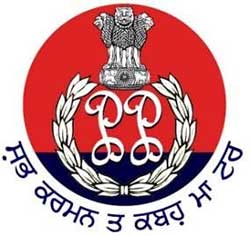Date : 23/06/2023
Relevance – GS Paper 2 – Governance: Appointment process
Keywords – Punjab Police (Amendment) Bill, 2023, Director General of Police (DGP), Supreme Court guidelines, Empanelment Committee
Context
The Punjab Vidhan Sabha, under the AAP government, recently passed the Punjab Police (Amendment) Bill, 2023, which aims to make changes to the appointment process of the state Director General of Police (DGP) as outlined in The Punjab Police Act, 2007.
Key Features of the Bill:
- State Government's Authority: The bill grants the state government the power to appoint a DGP of its choice.
- Empanelment Committee: The bill proposes the formation of a seven-member Empanelment Committee by the Punjab government.
- Selection Process: The committee will evaluate eligible officers based on factors such as length of service, record, and experience, and shortlist three senior-most officers to lead the police force.
- Precedence over Court Judgments: The provisions of the bill will take precedence over any court judgments, orders, or decrees.
Issues with the Bill:
- Contradiction with Supreme Court Guidelines: The bill contradicts the guidelines laid down by the Supreme Court in the former DGP Prakash Singh case (2006) on police reforms. According to the guidelines, the state government should send a panel of eligible officers to the Union Public Service Commission (UPSC), which then shortlists three officers for the state government to choose from.
- Non-Enforcement of Contradictory Rules: In 2018, the Supreme Court ordered that any rule or law conflicting with its guidelines should not be enforced. Consequently, the current bill goes against the Supreme Court's direction and undermines it.
Punjab Government's Justification for the Bill:
- State Jurisdiction: The Punjab government argues that "public order" and "police" fall within the state's jurisdiction, as stated in the seventh schedule of the Constitution of India.
- Addressing Specific Challenges: The government believes that a proper mechanism for the selection, appointment, and removal of the DGP is necessary, considering the unique challenges faced by Punjab as a border state.
Conclusion:
While Punjab has experienced recent incidents of violence and a deteriorating law and order situation, it is crucial not to disregard the Supreme Court's directive in justifying the bill. Striking a balance between the state's authority in appointing bureaucrats and upholding legal and constitutional procedures is of utmost importance.
Probable Question for Mains Examination
- Analyze the provisions of the Punjab Police (Amendment) Bill, 2023, in light of the Supreme Court's guidelines on police reforms. Discuss the potential implications of the bill on the appointment process of the state Director General of Police (DGP) and its compatibility with constitutional procedures. (10 Marks, 150 Words)
- Assess the Punjab government's justification for granting itself the authority to appoint a DGP of its choice through the Punjab Police (Amendment) Bill, 2023. Examine the constitutional aspects related to the state's jurisdiction over "public order" and "police," and evaluate the potential consequences of deviating from the Supreme Court's directives on police reforms. (15 Marks, 250 Words)
Source – Indian Express









